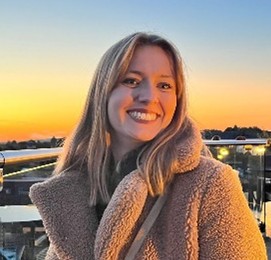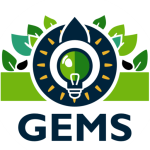Welcome
To The GreenEnergyMaterials-Series
Our Mission
The Green Energy Materials Series (GEMS) aims to promote the work of emerging and established scientists in the field of renewable energy covering subjects such as photovoltaics, energy storage, green fuel production, and more!
With its seminar series, GEMS gives the stage to early career researchers and key players in the field to promote and discuss their work with a community of green energy enthusiasts. The series provides a platform for scientists to give feedback, hear about new trends, current challenges, and important techniques and insights.
This series aims to facilitate discussions and to enable deeper insights into phenomena and characterisation techniques. As such, presentations will focus on clearly defined topics covered in depth rather than a list of big achievements.
Presentations will be around 30 minutes long, with copious time for questions. The series will run online via Zoom once every month. Sessions usually start at 4.30pm Berlin time (GMT+1) but might vary depending on the speakers’ location.
With the speakers’ permission (an embargo period is possible), the talks will be recorded and uploaded to the GEMS YouTube channel.
We look forward to welcoming all of you to these events,
Vincent M. Le Corre | Simon Kahmann | Bowen Yang
Next Talks - 18 February 2026
When developing perovskite based optoelectronic devices, reproducing results from the literature is often surprisingly difficult. We argue that a significant part of this problem can be attributed to insufficient data dissemination which could be mitigated by a collective effort towards developing and using more complete and standardised data sharing protocols for experimental procedures.

Hayley Gilbert
University of Cambridge and Diamond Light Source , UK
Linking the Chemical and Optoelectronic Properties of Alloyed Perovskites Using Optical and X-ray Spectro-microscopy
Mixed composition lead halide perovskites have emerged as successful light-absorbing materials for next-generation thin-film solar cell devices. For example, state-of-the-art triple cation Cs0.05MA0.17FA0.78Pb(I0.83Br0.17)3 perovskite solar cells have achieved higher efficiency and reproducibility than their single cation counterparts. The tunability of the band gap through compositional engineering is highly desirable for tandem devices and has helped such devices exceed efficiencies of 30%. However, the alloyed nature of these materials makes the thin films used in devices chemically and structurally heterogeneous, which can reduce device performance and long-term stability, creating a bottleneck in the development of perovskites into commercial devices. Additionally, increasing the band gap by increasing the bromide content has been shown to lead to halide segregation occurring upon illumination, reducing efficiency. Despite being integral to long term efficiency and stability, the mechanism behind halide segregation is not fully understood.
To elucidate the mechanism of halide segregation and the heterogeneous nature of alloyed perovskites thin films, we use photoluminescence (PL) spectroscopy, hyperspectral PL microscopy, and synchrotron X-ray techniques including X-ray absorption near edge spectroscopy (XANES) and XANES mapping under operando illumination conditions. This suite of approaches allows us to probe the optoelectronic performance, ion migration, elemental composition, and local chemical environment and structure both macroscopically and as a function of position across the thin film samples. By correlating these metrics, we gain a deeper understanding of the driving forces of performance-limiting halide segregation in these materials beyond what any single technique could deliver alone.




